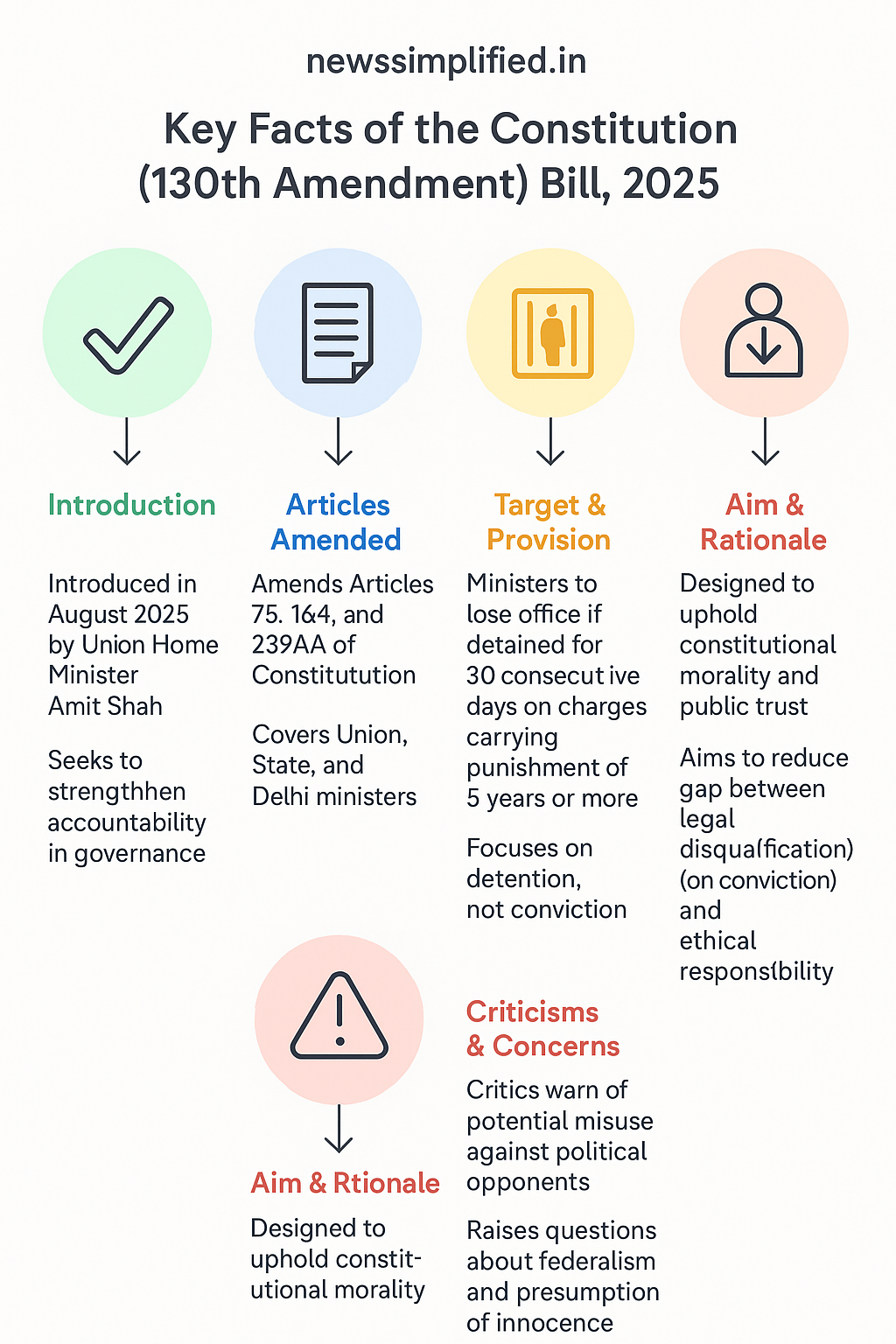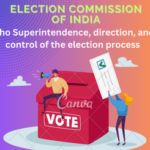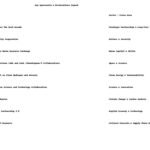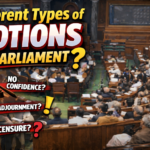Evaluate how the Constitution (130th) Bill, 2025, departs from—the existing legal and ethical framework of disqualification?

The Constitution (130th) Bill, 2025, sent to a Joint Committee.
The amendment seeks to provide a ‘legal framework’ to automatically oust chief ministers, ministers and the Prime Minister. The condition is that they detained in jail for 30 days in matters that attract a minimum sentence. The sentence which may extend to five years or more.
In the case of chief ministers and state cabinet ministers, the governor/lieutenant governor of the state or Union Territory will act as the concerned authority. In the case of the Prime Minister the President is the concerned authority.
It will amend article 75,164 and 239aa of the constitution,
Grounds vs Remedies under RPA, 1951
| Ground of Disqualification | Relevant Provision | Remedy Available |
| Conviction for certain offences (e.g., bribery, terrorism, dowry, hoarding, offences with 2+ years sentence) | Section 8 | Appeal in higher courts; stay on conviction (not just sentence) removes disqualification |
| Corrupt practices (bribery, undue influence, appeal to religion/caste, booth capturing) | Section 8A | Decision by President/Governor based on Election Commission’s opinion; judicial review available |
| Failure to lodge election expenses | Section 10A | Can approach Election Commission/High Court to contest decision |
| Office of Profit | Articles 102, 191 + Sections 9, 9A, 10 | Decision by President (MP) / Governor (MLA) after EC’s opinion; can be challenged in courts |
| Defection (changing party, voting against whip, independents joining parties, etc.) | Tenth Schedule (52nd Amendment) | Decision by Speaker/Chairman of House; subject to judicial review in courts |
| Unsound mind, insolvency, not an elector, allegiance to foreign state | Constitution (Articles 102, 191) | Determination by President/Governor with EC’s advice; subject to judicial review |
Judicial interpretation has further strengthened these provisions. In Lily Thomas v. Union of India (2013), the Supreme Court removed the protective shield of Section 8(4), ensuring immediate disqualification upon conviction. Similarly, in K. Prabhakaran v. P. Jayarajan (2005), the Court stressed that only persons of integrity should enter public life, while Kihoto Hollohan (1992) upheld judicial review in defection matters
The RPA, 1951, by listing grounds of disqualification and remedies, creates a fair balance between rule of law and political rights of citizens. Yet, democracy demands more than legality; it requires ethical conduct from representatives who must rise above partisan considerations and place the people’s trust above personal or political survival. Public faith in democracy rests not only on legal compliance but also on higher ethical responsibility.
Thus, a balance must maintained. The law provides structured remedies that prevent misuse. But ultimately, ethical leadership—voluntarily stepping aside when integrity is questioned—is crucial to strengthen democracy beyond mere legality.







0 Comments